spam
Latest
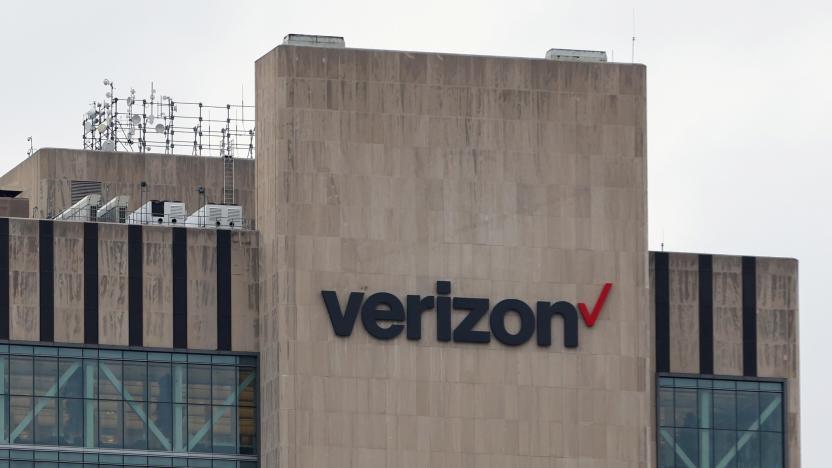
Verizon says ‘bad actors’ are to blame for sketchy spoofed spam texts
Verizon is aware of a spam campaign that is targeting its customers with their own phone numbers.

FCC proposal would prevent spam callers from leaving ringless voicemails on your cellphone
The Federal Communications Commission could soon make it more difficult for telemarketers to leave ringless voicemails on your cellphone.

New FCC rules could force wireless carriers to block spam texts
The Federal Communications Commission is seeking to create new rules targeting spam text messages.
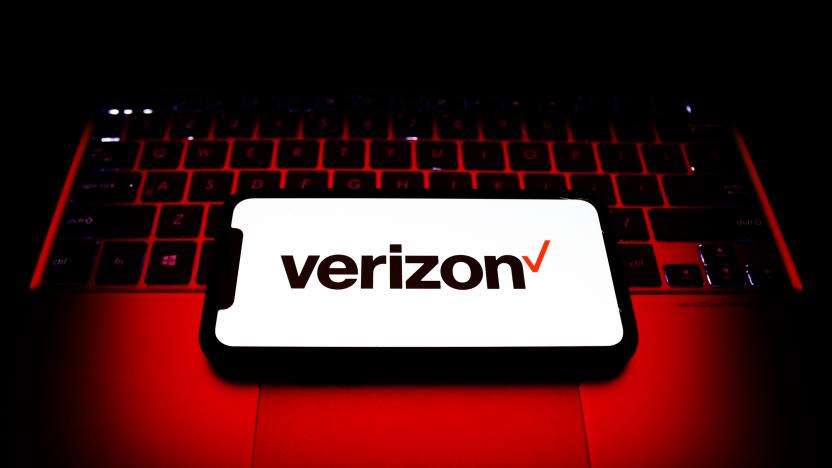
Verizon's call filtering app now blocks area code spoofing
Verizon's Call Filter app can now blocks neighborhood spoofing scams that use highly similar phone numbers.

FCC fines two Texas telemarketers $225 million for making 1 billion robocalls
The fine is the largest in the agency's history.
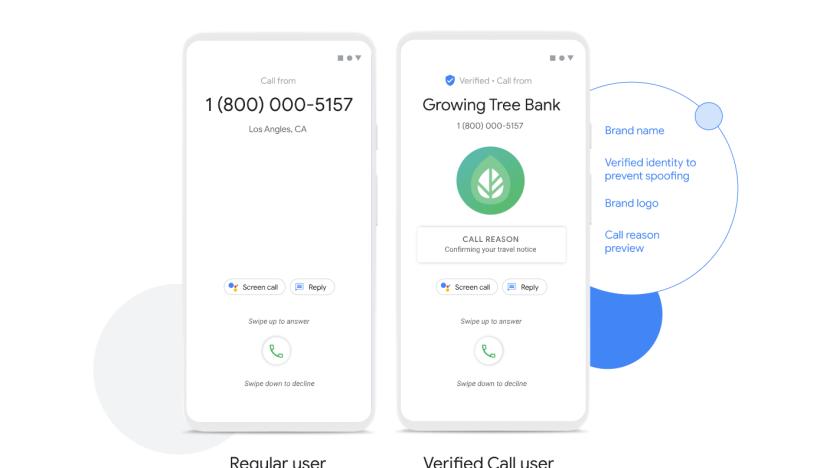
Google's phone app can tell you why businesses are calling
The app will soon be available on more Android devices too.
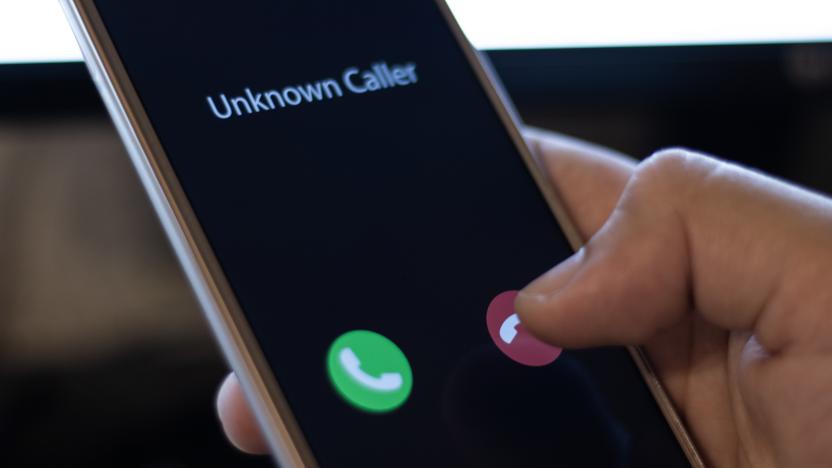
Research shows answering one robocall doesn't lead to more
Researchers used 66,606 fake phone lines to better understand robocalls.
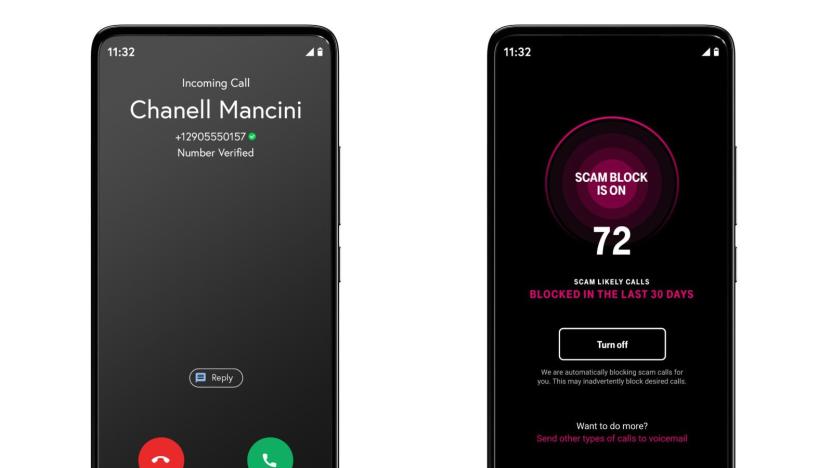
T-Mobile's 'Scam Shield' offers free caller ID and spam call blocking features
T-Mobile completed its purchase of Sprint earlier this year, and with those regulatory hurdles out of the way the company is once again announcing some new features for its expanded customer base. The focus is on spam and robocalls, something that T-Mobile says is the number one complaint right now to the FCC. Starting today, T-Mobile is offering its customers a variety of free services to make identifying and avoiding spam calls easier, a program called Scam Shield.

FCC won't warn robocallers before fining them
The FCC will no longer warn robocallers before it issues penalties, and it'll have more time to take action.

Facebook bug marked legitimate coronavirus info as spam
Facebook was quick to say that it would fight coronavirus misinformation, but yesterday, one tool appeared to go haywire. Users reported that Facebook was marking posts with legitimate information and articles about the coronavirus as spam. According to The Verge, Facebook has resolved the issue and restored the posts that were incorrectly removed, but this is a serious glitch at a time when so many people are looking for accurate information on the coronavirus and COVID-19.

Facebook reveals the AI tool it used to ban 6.6 billion fake accounts
Today, Facebook unveiled a machine learning tool that, in the last year, has removed more than six billion fake accounts. That's in addition to the millions of new fake accounts that Facebook blocks from being created daily. According to Facebook, the tool has been in production for two years and it's one of the most advanced methods Facebook has for fighting bogus accounts.

T-Mobile and Sprint can now verify calls across their networks
Today, T-Mobile and Sprint are rolling out number-verification to customers across both networks. Using the STIR/SHAKEN standards recommended by the FCC, the carriers hope to better fight robocalls. Ideally, this will make it harder for spammers to spoof numbers and give customers more confidence that the number calling them has not been ripped off by a robocall.

FCC wants to fine one man almost $13 million for making 6,000 robocalls
When the Federal Communications Commission (FCC) typically fines robocallers, they're usually operations that involve shady companies. Not so with the agency's latest proposed action, which targets a single individual. On Thursday, the FCC said it wants to fine one man $12,910,000 for carrying out massive robocalling campaigns in six states. In all, the person made more than 6,000 calls in California, Flordia, Georgia, Idaho, Iowa and Virginia using an online tool that allowed them to mask their calls as coming from a local number.

Android devices stop alerting users to completed app updates
Swiping away unwanted alerts and notifications is part and parcel of smartphone ownership, but it seems that Google is trying to mitigate some of the annoyance. According to a number of reports, the Play Store notification that usually pops up after an app has been updated has stopped appearing.

President Trump signs anti-robocall TRACED Act into law
A key bill to curb the robocall scourge is now the law of the land. President Trump has signed the TRACED Act, toughening the punishments for illegal robocalls and accelerating telecoms' efforts to block spam. Fines for robocalls now reach up to $10,000 per illegal call (and don't require a warning), and carriers must implement call authentication (already in use) to help prevent spoofing. The FCC has work to do, too -- it'll have to set rules determining when networks can block calls, and to prevent unauthenticated calls and texts from reaching phone subscribers.

Congress approves the TRACED Act to fight robocalls
Today, Senate approved the TRACED Act, or Telephone Robocall Abuse Criminal Enforcement Act. The legislation could give the government new powers to prosecute robocallers, The Washington Post says. It would also require carriers that authenticate and block spam callers to share those services with customers for free.
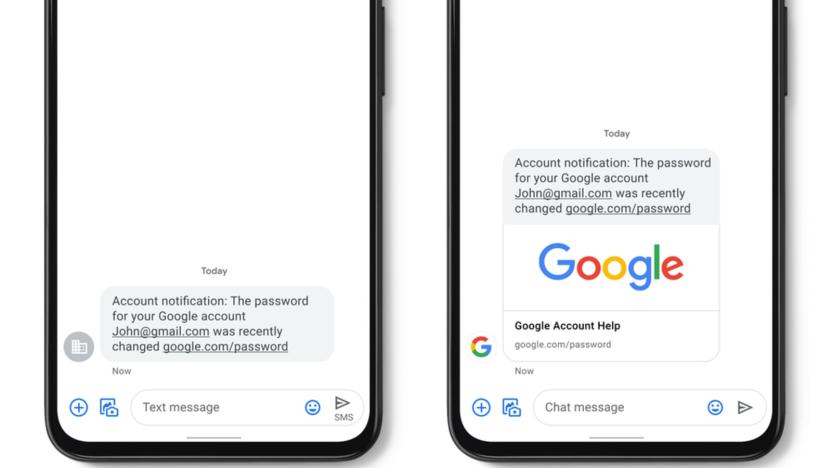
Google adds spam detection and verified business SMS to Messages
Businesses often send one-time passwords, account alerts and appointment confirmations via text. But if you've ever received one of those, you know they tend to come from a random number, and bad actors can take advantage of that by disguising phishing scams as one of those messages. To protect users, Google will soon verify SMS messages from registered businesses.

OpenAI published the tool that writes disturbingly believable fake news
In February, OpenAI announced that it had developed an algorithm that could write believable fake news and spam. Deciding that power was too dangerous to unleash, OpenAI planned a staged release so that it could offer pieces of the tech and analyze how it was used. Now, OpenAI says it has seen "no strong evidence of misuse," and this week, it published the full AI.

Your obsession with celebrities is helping scammers spread spam
Internet scammers will do just about anything to get a foothold on your home computer or mobile device, whether it's impersonating a work colleague, building fake websites for real products to steal credit card information, or posing malware as a legitimate app. One of their most tried and true ploys, though not particularly sophisticated, is exceedingly effective and involves promising nudes pictures or free episodes of shows and movies from today's top Hollywood talent.

Facebook reaches settlement with company selling fake Instagram likes
Instagram has been struggling recently from an onslaught of spam comments, fake likes and fake follows. Now Facebook, which owns the service, has won a small victory against the spammers. The social media giant has settled a court case with a New Zealand company which sold fake likes on the platform.







